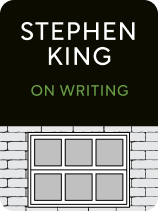

This article is an excerpt from the Shortform summary of "On Writing" by Stephen King. Shortform has the world's best summaries of books you should be reading.
Like this article? Sign up for a free trial here .
Do you want to learn how to get your book published? What are the steps you need to take according to Stephen King?
Once your book is written, there are several steps in how to get your book published. Stephen King explains these steps in his memory On Writing.
Keep reading to find out how to get your book published and more about the business of being a writer.
How to Get Your Book Published: The Business of Writing
Now you know how to produce writing that tells the truth. How do you survive on this writing and how do you get a book published? King ends his advice with practicalities of getting an agent, getting published, and writing programs. Knowing how to get your book published is part of the business of being a writer.
Getting an Agent
So how do you get a book published? One part of learning how to get your book published is getting an agent. Novice writers think that getting an agent is their golden ticket to getting published. Complementary to this is the idea that getting an agent is difficult, and that publishing is just an exclusive old-boys’ club.
King thinks this is totally fiction. The writing world is always looking for the next bestselling author they can make money off of. These writers can come from anywhere, from the struggling single parent of J.K. Rowling to Frank McCourt, who was 66 when he published Angela’s Ashes. There is no secret club for how to get published. It’s important to understand the business of being a writer and how to get your book published.
In turn, it’s not that hard to find an agent. But not all agents are good, and getting an agent is not a magic wand.
Here are tips on publishing and making your way in the business and learn how to get published:
- Start by building up your writing credentials. Get published wherever you can and work your way up. You need to be your own advocate before anyone else becomes your advocate in the business of writing.
- Study the places where you want to publish.
- Read magazines to understand what they like.
- Buy the book Writer’s Market, a thorough guide to publishers, magazines, awards, and agents. You’ll find their pay rates and thumbnails of what they’re looking for.
- Polish your submission to look professional. Include a brief but meaningful cover letter, print double-spaced copy on good paper, and show the word count clearly. Make it easy for them to like your submission.
- Submit your pieces to your target publications. You might have to aim lower at first, such as your college literary journal or small magazines that only pay issues (instead of paying money, they’ll send you contributor’s copies of the issue).
- As you build up your resume and work on how to get published, consider getting an agent, particularly if you’re targeting a bigger work like a novel. Agents will take you more seriously if you write a professional letter and have a publishing record.
- Vet agents who reply. Ask agents for a list of places they were able to get their clients published. Be suspicious of any agents who ask for a fee for the privilege of reading your work in the business of writing.
Now that you know how to get your book published, you can get a better sense of how the business works and steps to take. Remember Stephen King’s advice when asking the question “how do you get a book published?”

———End of Preview———
Like what you just read? Read the rest of the world's best summary of Stephen King's "On Writing" at Shortform .
Here's what you'll find in our full On Writing summary :
- Stephen King's personal writing habits that led to superstar books like Misery and It
- How to make a story and characters feel real
- Why you should never use adverbs






